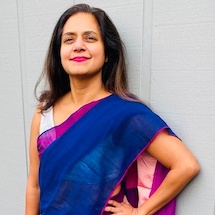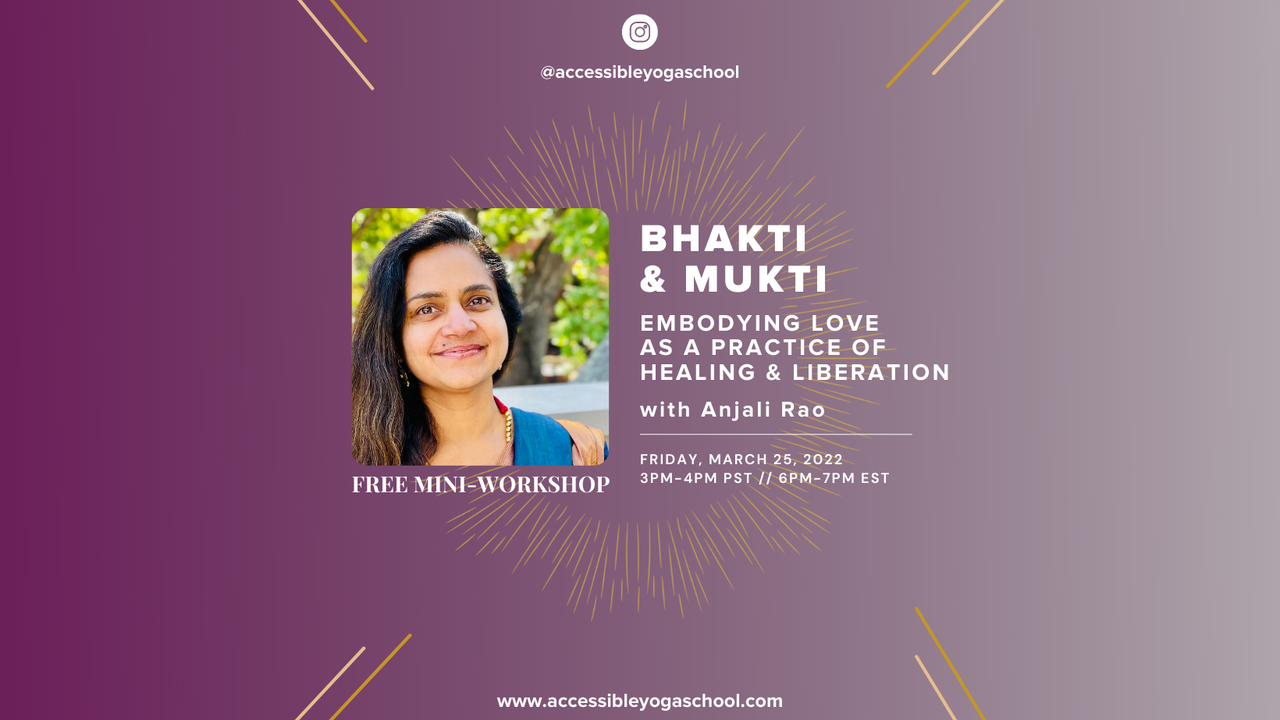Decolonization Is an Active Praxis of Resistance

by Anjali Rao
Decolonization is a noun, an action, and a movement that is used very often in reference to multiple issues and contexts, from pedagogy in education, to healthcare and wellness, to parenting, to corporate management, to yoga. Yet many who use this word do not elaborate further on the context, where it stems from, nor the specific actions and our specific roles in the process. There is often no mention of Indigenous peoples, the struggles for the recognition of sovereignty, or the contributions of activists to theories and frameworks of decolonization. We have to be very clear about our social location, intention, and impact when using this term, for we may otherwise be in danger of participating in undermining a movement for the very communities that have been harmed by colonization, i.e, Indigenous people of a particular land.
Colonization was detrimental to the Indigenous ways of living. Societies were depleted of their resources. There was a strategic sabotage of cultural and social institutions and a ruthless confiscation of property. Indigenous practices such as yoga and ayurveda were banned by the British, and the underlying Western European mind-body duality was seen as superior to the Indigenous epistemologies that recognized the connection between mind-body-spirit. In colonized societies, human interdependence and embodiment of nature needed policing, education, and correction.
Neo-colonization and capitalism have homogenized Indigenous populations and condemned wisdom traditions as heathen or exotic. As a guest in a land stolen from the Indigenous people of North America, I may not use the term 'decolonizaton' in a general, overarching way. But as a person of color, an immigrant coming from a formerly colonized land (India), where the roots of an Indigenous ancient practice (yoga) lie, a practice which is now neo-colonized and appropriated all over the world, I use the term 'decolonize' in this specific context. I owe my learning to the scholarship and activism of Indigenous, Black, Dalit, and Muslim teachers, stalwarts, and leaders.
What is Decolonization?
Decolonization is defined as "dismantling or the undoing of colonialism." In the context of yoga, it is reclaiming, remembering, and reconnecting the practice to its purpose of connecting--uniting us with each other, with the earth, with the past , with our roots, and acknowledging with awareness our own particular intersecting roles and responsibilities toward a re-imagination of the collective.
Based on findings from colonial discourse and sociology, we can begin unpacking how we can embody and practice the decolonization of yoga on and off the mats, with five principal entry points:
- Centering Indigenous storytelling
- Honoring culture, authentic rituals, and ceremonies
- Building and nurturing community relationships
- Nurturing our relationship to nature
- Making reparations
Centering Indigenous Storytelling
Stories in Indigenous epistemologies are disruptive and sustaining, share salient truths about our lives, and are decolonization theory in action. Some stories inspire with accounts of those who rose up to challenge power and privilege, defying kings and husbands, disrupting imperialist empires and casteist oppression. Stories bear wise messages about the complexity and the nuances of the human experience. In the rich and complex tapestry of the history of yoga, spanning millenia, there is no dearth of stories, no paucity of heroes/heroines and non-binary folks who have actively and radically transformed the world around them. However these stories have been challenging to unearth because no school or yoga teacher curriculum highlights or profiles these ancient voices.
Honoring Culture, Authentic Rituals, and Ceremonies
A ritual is a set of actions performed mainly for their symbolic value, for social connection, for acknowledging changes in season (many agrarian societies celebrate the harvest for example), and for spiritual communion with the divine. They may be performed by an individual, in places especially reserved for them, in arbitrary places, and/or on specific occasions to mark something considered significant within a culture. A ritual requires us to step away from the mundane, the every-day, and connects us with tradition, history, our ancestors, the Earth, each other, and the moment in time.
Colonizers portrayed and viewed rituals as exotic, mysterious, and unproductive. They did not add to the colonial coffers, and so were considered a waste of time and resources. In the capitalistic world we live today, there continues to be a commodification and compartmentalization of time--productivity is measured quantitatively in relation to a larger economy. Rituals are appropriated without context or cultural understanding, or are dishonored completely, either to gain someone credibility as a yoga practitioner/teacher, or to make a profit from selling the artifacts of Indigenous rituals (for example, the symbol of Aum on t-shirts, saris, footwear, etc.).
Decolonization requires us to look at our ancestral roots and reclaim the rituals that we connect with, self-reflect on why we are choosing any ritual, especially if it comes from a source culture that is different from our own, learn from Indigenous teachers if we choose to practice another’s cultural or religious practice, and, if we don’t connect with any other, to consider creating our own rituals based on our social location, access to resources, and the need it fulfills in our lives. If we choose to use any artifact from any culture, we must source it from the Indigenous peoples rather than a mass producer.
Building & Nurturing Community Relationships
Collectivism is defined as an emphasis on cohesiveness among individuals and prioritization of the group over the self. We are in collective isolation. We are in collective suffering.
Yoga in the modern world is impacted by individualism. This cultural value shows up in the commodification, perfectionism, and idealization of a certain body type in yoga spaces. People who can afford the classes, the studio/gym memberships, the clothes and props, and who are also thin, able-bodied, and hyper-flexible are centered, accorded status and privilege, and considered experts and “successful” practitioners. The focus of the practice is on the physical aspect of the practice, attaining perfection in asana rather than learning about philosophy and understanding how we can expand our self-awareness and consciousness. We can co-create communities that center equity, celebrate differences, uplift marginalized voices, repair trust in relationships, and honor the people whose ancestors gifted us the varied practices and philosophies of yoga.
Nurturing Our Relationship to Nature
Indigenous people have lived in harmony with cycles of creation, sustenance, and destruction, in close relationship with the Earth. Ancient yogic thought gleaned from the Vedas reveals that creation (prakriti, matter, nature, humans, non-human animals, plants, etc.) was considered to be a manifestation of purusa (the immortal, immutable spirit). Bhoomi Devi (goddess of earth), Agni (god of fire), Varuna (god of oceans), and Vayu (god of wind) were Puranic deities, an embodiment of nature, in reverence to the might and the mystery of the elements of creation. Ayurveda, often called a sibling of yoga, is about these eternal and ever-changing, elemental and profound relationships that our physical, emotional, mental, and spiritual selves have to nature, which is manifested both within and without, in gross and subtle ways.
Colonization disrupted our connection with the earth, and capitalism and industrialization shifted the economy from one that worked with nature, to one that disregards, degrades, and further separates us from it.
Making Reparations
Colonization and white supremacy in Western yoga has erased, marginalized, and caused harm and trauma to Brown and Black people. One can offer reparations as a means to heal intergenerational and racial wounds by acknowledging past and present harm, and by not glossing over the past. This can be done in conjunction with other conversations and movements to cultivate solidarity and allyship across differences of race, gender, ability, sexual orientation, economic and education privilege, caste etc. Uplifting South Asian teachers, diversifying our reading, creating spaces that invite and center the needs of those who have marginalized identities, and supporting and offering mutual-aid can be some of the ways we offer reparations in yoga spaces.
Why is Decolonization Important?
Colonization is rooted in racism and causes fragmentation and isolation. Power hoarding is inherent in colonized systems, an emphasis on profit-making over human relationships. There is competition for resources, mistrust and fear of each other. This, in turn, perpetuates harm and violence, himsa, in our systems and institutions. The earth is in turmoil--our planet needs us to show up and make changes in how we live, how we consume, and how we interact with each other. There are many who want to create and be a part of something bigger, to make an impact toward social change, but who do not know where to start. There are many yoga students and teachers who want to show up for collective transformation, but feel overwhelmed or lost. Unraveling how colonization impacted and continues to impact yoga, as well as our own participation in yoga spaces, can inspire and inform how other realms such as healthcare, education, public policy, and judicial systems uphold institutional power and privilege. Decolonization is thus a reclamation and an active praxis of resistance.
About The Author

Anjali Rao is a yoga teacher, social justice activist, multi-cultural training specialist and a cancer survivor. She is an Indian American immigrant from Bangalore, India. Her work explores yoga philosophy and history integrating marginalized voices using story- telling, imagery and poetry. She teaches intensives integrating social justice and yoga, is a part of teacher training faculty, conducts workshops and is a speaker at wellness conferences .
Being diagnosed at 37 for early-stage Breast cancer, and recovery for multiple surgeries brought her to her first Yoga-Asana class. She knew by the end of the first class that this practice would change her life in big ways. Her passion is to share this alchemical practice and philosophy with people across ages, genders and abilities.
Anjali serves on the Board for Accessible Yoga, an international non-profit and grassroots organization dedicated to sharing the teachings of Yoga with everyone. She also serves on the Board of HERS Breast Cancer Foundation, a non-profit that helps survivors and those going through treatment regardless of financial status.

Interested in learning more?
Join Anjali for her upcoming FREE mini-workshop, Bhakti & Mukti: Embodying Love as a Practice of Healing & Liberation. In this virtual offering, Anjali will explore:
- Bhakti Yoga as taught by Sri Krishna in the Bhagavad Gita
- Historical significance in important social change movements
- Decolonization and Bhakti
- Inspiration for integrating Bhakti in your personal practice honoring diverse cultural and religious lineages
- and more!
She'll also discuss the curriculum for her upcoming course, Yoga & Activism: A Blueprint for Collective Transformation, which begins April 8, 2022. And she'll give away one free spot in the training!
Friday, March 25, 2022
3-4pm Pacific (Los Angeles)
6-7pm Eastern (New York)
Recordings will be available for those who register but are unable to attend live!

